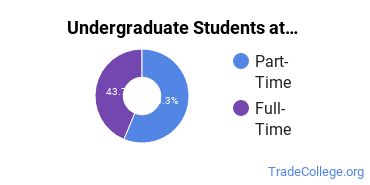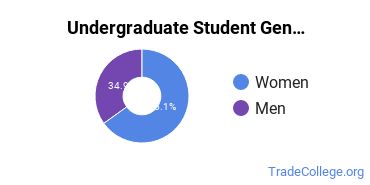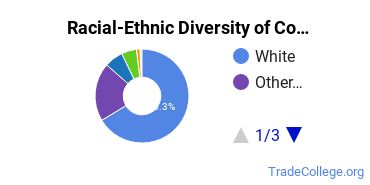Find Trade Colleges
Colby Community College Trade Programs
Located in Colby, Kansas, Colby Community College is a public institution. The surrounding location of Colby is ideal for students who enjoy the charms of a college town.
Featured schools near , edit
Where Is Colby Community College?

Contact details for Colby Community College are given below.
| Contact Details | |
|---|---|
| Address: | 1255 S Range, Colby, KS 67701 |
| Phone: | 785-462-3984 |
| Website: | www.colbycc.edu |
Can I Afford Colby Community College?
| In State | Out of State | |
|---|---|---|
| Tuition | $2,696 | $4,236 |
| Fees | $1,500 | $1,500 |
| Books and Supplies | $1,042 | $1,042 |
| On Campus Room and Board | $8,378 | $8,378 |
| On Campus Other Expenses | $3,164 | $3,164 |
Student Loan Debt
Almost 66% of college students who graduated with the class of 2018 took out student loans, but that percentage varies from school to school. At Colby Community College, approximately 22% of students took out student loans averaging $4,892 a year. That adds up to $19,568 over four years for those students.
Colby Community College Undergraduate Student Diversity

Gender Diversity
Of the 581 full-time undergraduates at Colby Community College, 34% are male and 66% are female.

Racial-Ethnic Diversity
The racial-ethnic breakdown of Colby Community College students is as follows.

| Race/Ethnicity | Number of Grads |
|---|---|
| Asian | 2 |
| Black or African American | 39 |
| Hispanic or Latino | 26 |
| White | 402 |
| International Students | 45 |
| Other Races/Ethnicities | 67 |
Over 23 countries are represented at Colby Community College. The most popular countries sending students to the school are Canada, Bahamas, and Kenya.
Colby Community College Trade School Concentrations
The table below shows the number of awards for each concentration.
| Major | Basic Certificate | Associate’s | Undergraduate Certificate | TOTAL |
|---|---|---|---|---|
| Solar Energy Technology/Technician | 25 | 3 | 24 | 52 |
| Nursing Assistant/Aide and Patient Care Assistant/Aide | 29 | 0 | 0 | 29 |
| Licensed Practical/Vocational Nurse Training | 0 | 0 | 20 | 20 |
| Physical Therapy Assistant | 0 | 16 | 0 | 16 |
| Wind Energy Technology | 9 | 0 | 4 | 13 |
| Telecommunications Technology | 12 | 0 | 0 | 12 |
| Welding Technology/Welder | 9 | 0 | 0 | 9 |
| Dental Hygiene/Hygienist | 0 | 0 | 0 | 0 |
| Medication Aide | 0 | 0 | 0 | 0 |
| Energy Systems Installation and Repair Technology | 0 | 0 | 0 | 0 |
| TOTAL | 84 | 19 | 48 | 151 |
References
*The racial-ethnic minorities count is calculated by taking the total number of students and subtracting white students, international students, and students whose race/ethnicity was unknown. This number is then divided by the total number of students at the school to obtain the racial-ethnic minorities percentage.
More about our data sources and methodologies.
